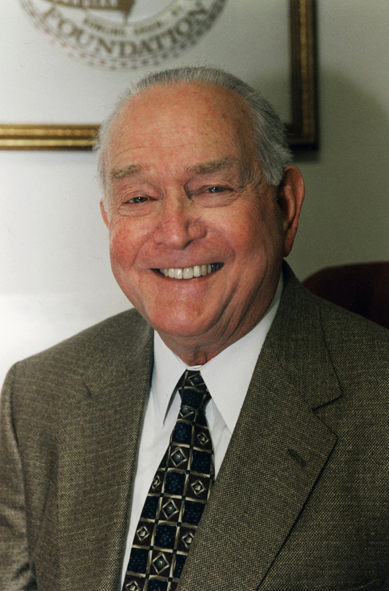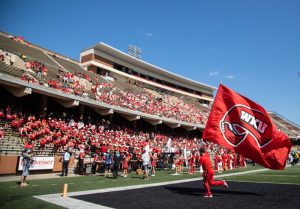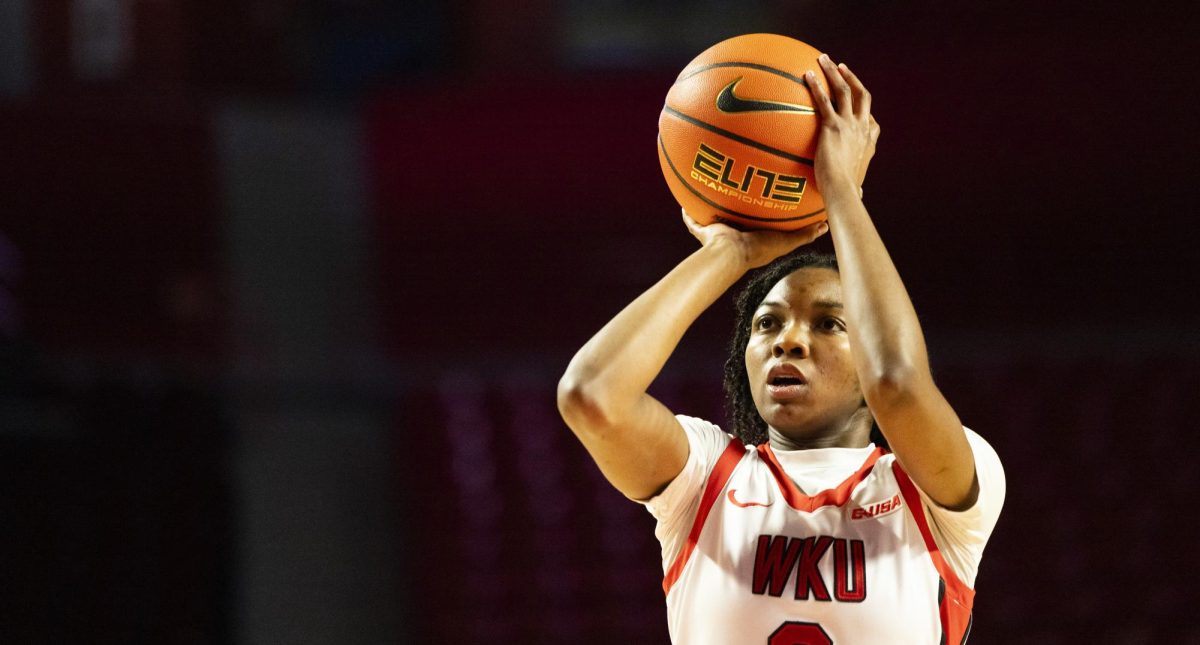Downing’s death ends era at WKU
April 8, 2011
Dero Downing was at WKU when most university traditions — if not all of them —were established.
Downing, WKU’s fourth president, died Monday at Centennial Medical Center in Nashville. He was 89.
“What I think that’s unusual is, for our first 73 years, we had only four people serve as presidents,” President Gary Ransdell said. “Cherry, Garrett, Thompson and Downing — and Downing was a student or administrator for most of that time.”
Downing served as president from 1969 until he resigned in 1979.
He has also been called mentor, husband, Christian, coach, father and legacy.
“He was always very concerned about the welfare and lifestyles of our students,” said Howard Bailey, vice president for Student Affairs, who began working at WKU while Downing was president.
“I don’t think there is anyone who ever cared or loved WKU any more than he,” Bailey said.
Downing was also a WKU student, athlete and administrator.
He has five children, all of whom are WKU graduates, and 13 grandchildren, six of whom are also WKU graduates.
Downing was born in Fountain Run on Sept. 10, 1921. He graduated from Horse Cave High School in 1939, where he was president of his senior class and a member of the basketball team.
After high school, Downing attended WKU, where he continued his basketball career, playing for E. A. Diddle, and was again elected president of his senior class. He received his undergraduate degree in mathematics in 1943.
Shortly after graduation, Downing joined the U.S. Navy as an ensign. He was among the first wave to hit the beaches at Normandy on D-Day in June 1944. In 1945, he was released from active service with the rank of lieutenant.
Downing returned to WKU the next year to teach and complete his master’s degree. He taught math and coached basketball for the College High School, the high school division of Western’s Training School.
During his time at the training school, Downing was supervisor to Lee Robertson, special assistant to the vice president of the Office of Development and Alumni Relations, who did his practice teaching there in 1948.
“He was a family man, a moral man … but above all else, he was born to be an educator,” Robertson said. “He was a good coach because he knew how to treat and handle young men. He was a great teacher because he was bright and he worked at it.”
In 1950, Downing gave up coaching to focus on teaching, and in 1956 he was named director of the training school. He received his Ed.S. degree in 1958 from George Peabody College for Teachers in Nashville.
Downing quickly moved up at WKU. In 1959, he was named registrar. In 1962, he became director of admissions. He then served as dean of business affairs, and in 1965, he was made vice president for administrative affairs.
Robertson said Downing was a loyal and determined president.
“This was the place he loved, and he worked hard to make it better,” he said. “He stood by his beliefs, sometimes by himself and against all the odds.”
Robertson said he and Downing became close friends after working together at the training school and at WKU.
“He had a great sense of humor,” Robertson said. “I enjoyed it very much — those days that we were working together and traveling together.”
Ransdell noted that Downing was president during a unique time in American history — during the Vietnam War, a period of general student unrest with draft dodging, marijuana, riots and protesting.
He said the time period tested Downing’s “personal system.”
“He’s very conservative, and his value systems are absolute,” Ransdell said. “He had to be very careful and thoughtful not to over-react to a lot of things.”
When Downing resigned as president in 1979, the decision shocked a lot of people at WKU.
“My hunch is, were it not for a lot of that stress, he may have been president a lot longer,” Ransdell said.
After he resigned as WKU president, Downing became president of the College Heights Foundation.
Deborah Wilkins, chief of staff and general counsel, said Downing embodies the spirit of WKU.
“He was just a very good-hearted person,” Wilkins said. “It’s really rare to find someone who’s just kind and very approachable by everyone. He remembered everyone. If he met you once, he’d remember you if he didn’t see you for years.”












